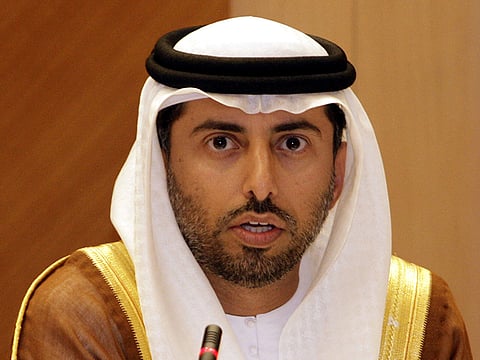UAE looking to scrap subsidies on electricity, gas sold to power companies
Energy Minister says UAE is looking to remove subsidies on electricity, gas sold to power-generating companies

Davos, Switzerland: The UAE is looking at removing subsidies on both electricity and on gas sold to companies generating power, said Energy Minister Suhail Al Mazroui, speaking at the World Economic Forum in Davos.
“Consumers need to pay the real price. They already do so for petrol and diesel, and electricity is still to come, and we will look at the subsidised sale of gas to power providers,” he said at the Al Arabiya debate on economic reform in the Arab world.
He said that the impact on removing subsidies on domestic electricity would not be that great to the consumer as it only really applies at the higher levels of use at present.
He referred to a benchmark price in the US of between 12 to 15 cents per kilowatt hour.
Al Mazroui also added that once subsidies were removed and the prices were at standard world levels, the source of the fuel would cease to matter and providers could use UAE gas or import it.
He pointed out that this process of subsidy reduction is part of a much wider strategy to make the government budget independent of oil revenues.
“Since its inception the UAE has sought diversification from oil, and even though oil revenues will always be there, we need a vibrant economy independent of oil,” he said.
Reinvesting the subsidy into areas like building a world class infrastructure, modern schools and up to date hospitals is an opportunity for the government, but it is not the whole story said Al Mazroui.
“We need to work across all our GCC partners, and we need to tell the people what is happening so they understand what we are doing and appreciate it”.
In answer to a question from the floor on tax, Al Mazroui pointed that many UAE companies are global players and are accustomed to paying tax in the many countries where they operate.
“In the UAE we have world leaders in airlines with Etihad and Emirates, ports through DPWorld, semi-conductors with Mubadala, and we have the third-largest petrochemical business in the world,” he said.
“They all pay tax outside so it would not be a great shock to them to pay in the UAE if it came, although such a move could not be unilateral and would have to be done with other countries”.
Reforms
Al Mazroui’s comments were part of a wider debate on how to cope with the fall in the oil price, but also to take advantage of the crisis and implement the long-term reforms that are needed anyway, with an eye to generating economic growth, creating the hundreds of thousands of new jobs the region needs, and diversifying the economies of the region so that they are better able to withstand global shocks.
Al Mazroui also took the opportunity to point out that diversity was not just about developing new non-oil industries (that the UAE has been developing for decades), but was also about building a diverse population and he hoped that this sense of inclusion would increase and act as a guide for the whole Arab world.
Sign up for the Daily Briefing
Get the latest news and updates straight to your inbox



